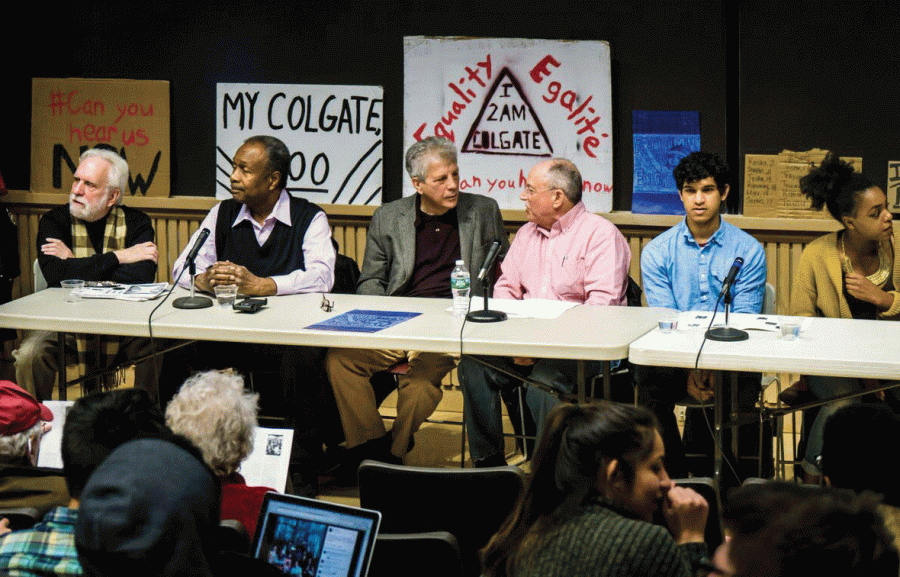Failure To Communicate?: A Response To “Colgate Sit-Ins, Then and Now”
Alumni and students were offered the opportunity to greater understand the nature of protest at Colgate, historically.Raising awareness, however, is not just about increasing diversity but so much more.
About 30 minutes into the panel discussion concerning the student sit-ins of 1968 and 2014 that Senior Charity Whyte and I organized, I was reminded of a famous line from the movie Cool Hand Luke: “What we have here is a failure to communicate.” I confess I didn’t see it coming. In retrospect I probably should have anticipated it.
Speaking strictly for myself – not Charity or any of the panelists – my reason for undertaking the project was based on the belief that the participants in both events could learn valuable lessons from each other. It seemed to me that, despite a 46–year gap between the demonstrations, we shared the common goal of creating a Colgate community that reflected the vibrant diversity of our society, a community truly based on mutual respect, equality and acceptance. In other words, I had no doubt we could talk to each other. We were allies.
Unfortunately, it didn’t work out that way. The point of this article isn’t to rehash the debate that occurred. I’m writing to respond to one point made by a student quoted in the Maroon-News article published March 31. It was the student’s impression that my classmates and I had returned to campus “to challenge the students, for the purpose of legitimizing their movement and belittling ours.”
I apologize for whatever we said that conveyed that. I can assure everyone at Colgate – and now I am speaking for Dennis, John, Naceo and Marc – that we have great respect for what the Association of Critical Collegians (ACC) achieved in 2014. One of the things we talked about among ourselves prior to the panel discussion was how much more complex a task the ACC had undertaken compared to what the Association of Black Collegians (ABC) and its supporters had faced in 1968. Our goal back then was to promote diversity on campus among students and faculty, and to eliminate a selective housing system that fostered bigotry. The changes we sought could be expressed in the concrete language of numbers and rules governing
observable conduct.
The movement of 2014, as I understand it, raised awareness that the problem goes a lot deeper than simply increasing diversity. Being physically present doesn’t make someone part of a community. It’s about inclusiveness and that’s a much tougher issue to define and address. Numbers aren’t much use here. All discussion necessarily shifts into the realm of the subjective. This is a natural evolution of the campaign the ABC started in 1968. The goals the ACC set for itself are the last and perhaps most difficult steps on an exhausting journey toward a Colgate for all. I wish we could have discussed subjects like this during the panel.
So back to Cool Hand Luke. The truth is there was no failure to communicate. The prison camp Captain and Luke understood each other perfectly. The Captain was determined to break Luke’s will to resist. Submit or die. Luke chose death. Sometimes it’s easier for bitter adversaries to understand each other than it is for natural allies. It’s a shame that we – and now I mean everyone in that auditorium – didn’t fully embrace the opportunity.





